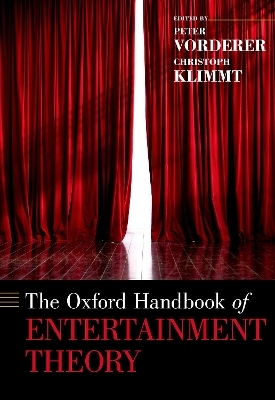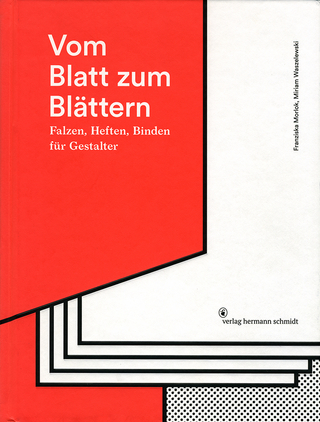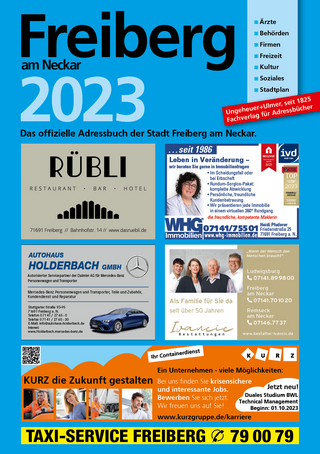
The Oxford Handbook of Entertainment Theory
Oxford University Press Inc (Verlag)
978-0-19-007221-6 (ISBN)
The proliferation of new digital technologies has given rise to an entirely changed media landscape and revolutionized how we seek entertainment. Older entertainment media like novels, radio, and film have been joined by a host of digital media that smartphones allow us to carry almost anywhere and at all times, from video games and social media to video on demand services. This unprecedented ubiquity of entertainment media calls for new and more sophisticated theories that help us understand the fascination that different entertainment media exert on us and how they change the human experience.
The Oxford Handbook of Entertainment Theory surveys and furthers the most influential psychology-driven research on media entertainment to illuminate how people are drawn into media experiences. The 41 chapters in this Handbook not only offer fresh perspectives on established theories but also introduce emerging models and highlight the importance of considering the diverse backgrounds of media users when conducting research. They also cover the motivations and reactions of media users in relationship to different types of media, the trend towards interactive media such as video games and virtual reality, and particularly popular media contents like sexuality, violence, sports, and the news. As the most comprehensive overview of psychology-based research on media entertainment available, this Handbook is an invaluable resource for seasoned researchers and those beginning to learn about the field alike.
Peter Vorderer is Professor of Media and Communication Science at the University of Mannheim, Germany. His research focuses on media-psychological questions, particularly the effects of entertainment media content, and the ubiquitous use of media in everyday life. He is a past president of the International Communication Association. Christoph Klimmt is Professor of Communication Science at Hanover University of Music, Drama, and Media. His research interests revolve around media entertainment, media effects, and digital media technologies. He serves as editor-in-chief of the Journal of Media Psychology.
Preface
Section I: General Theoretical Accounts of Media Entertainment
Chapter 1: A Brief Analysis of the State of Entertainment Theory: Historical Achievements, Contemporary Challenges, and Future Possibilities
Peter Vorderer, Christoph Klimmt, and Jennings Bryant
Chapter 2: Entertainment Is a Journey, Not Just a Destination: Process Perspectives in Entertainment Theories
Andreas Fahr and Hannah Früh
Chapter 3: The Narrative Enjoyment and Appreciation Rationale
Ron Tamborini, Sara Grady, Joshua Baldwin, Nikki McClaran, and Robert Lewis
Chapter 4: Life-Span Developmental Changes in Media Entertainment Experiences
Marie-Louise Mares and James Alex Bonus
Chapter 5: A Systematic Gender Perspective on Entertainment Theory
Sabine Reich
Chapter 6: How Universal Is Media Entertainment, Really? On the Enriching Potential of Cross-Cultural Approaches for Existing Entertainment Scholarship
Özen Odag
Chapter 7: Entertainment and Resonance
Peter Vorderer
Chapter 8: Finding Elusive Resonance Across Cultures and Time
Gerald C. Cupchik, Despina Stamatopoulou, and Siying Duan
Section II: Models and Theories Dedicated to Specific Experiential Processes
Chapter 9: Selection of Entertainment Media: From Mood Management Theory to the SESAM Model
Kate T. Luong and Silvia Knobloch-Westerwick
Chapter 10: Binge-Watching as a Case of Escapist Entertainment Use
Annabell Halfmann and Leonard Reinecke
Chapter 11: Media Entertainment as Guilty Pleasure? The Appraisal of Media Use, Self-Control, and Entertainment (AMUSE) Model
Leonard Reinecke and Adrian Meier
Chapter 12: Advances in Research on the Model of Intuitive Morality and Exemplars (MIME)
Allison Eden, Ron Tamborini, Melinda Aley, and Henry Goble
Chapter 13: Stories Enlarge the Experience of Self: Evidence for the Temporarily Expanded Boundaries of the Self (TEBOTS) Model
Benjamin K. Johnson, Michael D. Slater, Nathaniel A. Silver, and David R. Ewoldsen
Chapter 14: Stepping In and Out of Media Characters: Identification and Dynamic Shifts in Users' Positioning towards Entertainment Messages
Jonathan Cohen and Christoph Klimmt
Chapter 15: Involvement with Media Personae and Entertainment Experiences
William J. Brown
Chapter 16: Only Project: A Psychological Principle Explored in a Novel
Keith Oatley
Chapter 17: The Role of Narrative Cues in Shaping ADT: What Makes Audiences Think that Good Things Happen to Good People?
Ron Tamborini, Matthew Grizzard, Lindsay Hahn, Kevin Kryston, and Ezgi Ulusoy
Chapter 18: Media Entertainment, Flow Experiences, and the Synchronization of Audiences
Jacob T. Fisher, Chelsea Lonergan, Frederic R. Hopp, and René Weber
Chapter 19: Transcending Eudaimonic Entertainment: A Review and Expansion of Meaningful Entertainment
Sophie H. Janicke-Bowles, Anne Bartsch, Mary Beth Oliver, and Arthur A. Raney
Chapter 20: Biographic Resonance Theory of Eudaimonic Media Entertainment
Christoph Klimmt and Diana Rieger
Chapter 21: Kama Muta as an Eudaimonic Entertainment Experience
Sophie H. Janicke-Bowles, Thomas Schubert, and Johanna K. Blomster
Chapter 22: Entertained by Amazement and Wonder: The Role of the Emotion Awe in Media Reception
Daniel Possler and Arthur A. Raney
Section III: Models on Entertainment Phenomena Bound to Specific Media or Message Types
Chapter 23: Humor and Comedy
Jeffrey Goldstein
Chapter 24: Portrayals of Human Sexuality as Entertainment
Francesca R. Dillman Carpentier and Farnosh Mazandarani
Chapter 25: Cooling Down or Charging Up? Engagement with Aggressive Entertainment Contents as an Emotion Regulation Strategy of Boredom and Anger
Heidi Vandebosch and Karolien Poels
Chapter 26: Sports as (Digital) Media Entertainment
Nicky Lewis
Chapter 27: News as Entertainment Format: Applying Affective Disposition Theory and the Affective News Extended Model
Melissa J. Robinson and Silvia Knobloch-Westerwick
Chapter 28: An Extended Dual-Process Model of Entertainment Effects on Political Information Processing and Engagement
Frank M. Schneider, Anne Bartsch, and Larissa Leonhard
Chapter 29: Cinematic Entertainment: Contemporary Adolescents' Uses-and-Gratifications of Going to the Movies
Maite Soto-Sanfiel
Chapter 30: How Do People Evaluate Movies? Insights from the Associative-Propositional Evaluation Model
Frank M. Schneider, Ines C. Vogel, Uli Gleich, and Anne Bartsch
Chapter 31: TV Series Fandom as Eudaimonic Consumption
José Antonio Muñiz-Velázquez and Javier Lozano Delmar
Chapter 32: A Synergistic Multi-Process Model of Video Game Entertainment
Christoph Klimmt and Daniel Possler
Chapter 33: Interactivity as Demand: Implications for Interactive Media Entertainment
Nicholas D. Bowman
Chapter 34: Players' Moral Decisions in Virtual Worlds: Morality in Video Games
André Melzer and Elisabeth Holl
Chapter 35: Player-Avatar Identification, Relationships, and Interaction: Entertainment through Asocial, Parasocial, and Fully Social Processes
Nicholas D. Bowman and Jaime Banks
Chapter 36: Entertainment in Virtual Reality and Beyond: The Influence of Embodiment, Co-Location, and Cognitive Distancing on Users' Entertainment Experience
Tilo Hartmann and Jesse Fox
Section IV: Models on Consequences or Correlates of Entertainment Phenomena
Chapter 37: Retrospective Imaginative Involvement and Entertainment Narratives: Initial Forays
David R. Ewoldsen, Rick Busselle, Neha Sethi, and Michael D. Slater
Chapter 38: Media Entertainment as a Self-Regulatory Resource: The Recovery and Resilience in Entertaining Media Use (R²EM) Model
Leonard Reinecke and Diana Rieger
Chapter 39: Entertainment Media and Social Consciousness
Meghan S. Sanders, Chun Yang, Anthony Ciaramella, Rachel Italiano, Stephanie L. Whitenack, and Hope M. Hickerson
Chapter 40: Entertainment Theories and Media Addiction
Felix Reer, Robin Janzik, Lars-Ole Wehden, and Thorsten Quandt
Chapter 41: Theorizing Entertainment-Education: A Complementary Perspective to
the Development of Entertainment Theory
Hua Wang and Arvind Singhal
| Erscheinungsdatum | 09.03.2021 |
|---|---|
| Reihe/Serie | Oxford Handbooks |
| Zusatzinfo | 25 illustrations |
| Verlagsort | New York |
| Sprache | englisch |
| Maße | 251 x 178 mm |
| Gewicht | 1860 g |
| Themenwelt | Kunst / Musik / Theater ► Film / TV |
| Sozialwissenschaften ► Kommunikation / Medien ► Allgemeines / Lexika | |
| Sozialwissenschaften ► Kommunikation / Medien ► Kommunikationswissenschaft | |
| ISBN-10 | 0-19-007221-0 / 0190072210 |
| ISBN-13 | 978-0-19-007221-6 / 9780190072216 |
| Zustand | Neuware |
| Informationen gemäß Produktsicherheitsverordnung (GPSR) | |
| Haben Sie eine Frage zum Produkt? |
aus dem Bereich


